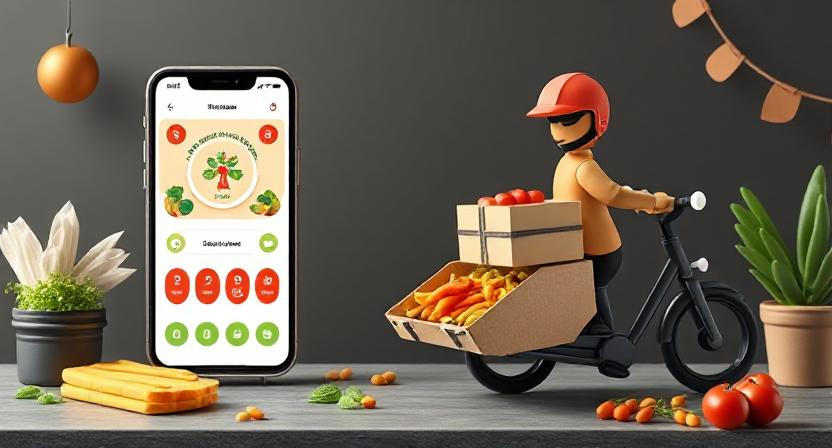Why Tart Cherry Is the…
Blog by Sherry Larson Why Tart Cherry Is the Natural…
Table of Contents
Toggle
Today, most people don’t even cook, let alone store food for months. Instead, they turn to food delivery apps for their daily meals. The rise of instant delivery has created a culture of convenience, but it has come at a significant cost.
With food available at the push of a button, people have forgotten how to cook and prepare real meals. Instead of learning how to:
Most people now rely on pre-packaged, ready-made, or restaurant-prepared foods. This disconnect from food preparation is making us increasingly dependent on corporations, restaurants, and processed food manufacturers.
Unlike the food stored in a root cellar—fresh, whole, and nutrient-dense—most food ordered through delivery apps is:
Studies show that people who eat mostly restaurant and processed foods suffer from higher obesity rates, metabolic disorders, digestive issues, and chronic diseases compared to those who cook their own meals.
Food delivery might seem like a simple luxury, but the cost adds up quickly. When compared to cooking at home:
Relying on delivery trains people to overpay for food that isn’t even high-quality, creating long-term financial strain.
Root cellars represented sustainability—they reduced waste, required no electricity, and encouraged local food sourcing. Food delivery, on the other hand, is a disaster for the environment due to:
Instead of supporting local, seasonal eating, food apps promote an unsustainable global food system reliant on imports, factory farming, and excessive waste.
The shift from self-sufficiency to complete dependence on food services happened gradually but deliberately. Some key reasons include:
This has resulted in generations of people who don’t know how to store, preserve, or cook real food, making them entirely dependent on corporations for survival.
While most people can’t have an actual root cellar today, we can still embrace its principles and reclaim our independence from food delivery culture.
Start by cooking at least 80% of your meals at home. Not only is this healthier, but it also saves money and reduces waste.
Opt for real ingredients—fruits, vegetables, meats, and grains—rather than processed, ready-made options.
Even without a root cellar, you can store food naturally using traditional techniques:
Instead of relying on mass-produced, low-quality food, visit farmers’ markets, join a CSA, or grow herbs and vegetables in small spaces.
One reason people rely on food apps is the “I don’t know what to cook” dilemma. Planning meals ahead ensures you always have something nutritious ready.
We live in an era where food is more accessible than ever, yet nutrition is at an all-time low. The move from root cellars to food apps has made us:
But we still have a choice.
By embracing real food, learning food preservation, and breaking free from the convenience trap, we can reclaim our health, our independence, and our connection to nature.
Blog by Sherry Larson Berberine: Nature’s Secret Weapon for Blood Sugar, Inflammation & More If you’re looking for…
Blog by Sherry Larson Shilajit: Nature’s Ancient Energy Tonic for Modern Burnout We’ve all felt it—that sluggish, wired-but-tired…
Blog by Sherry Larson Celery Juice: The Gut-Healing, Liver-Loving Morning Ritual You Didn’t Know You Needed If you’ve ever felt…
Blog by Sherry Larson Milk Thistle: The Detox Defender Your Liver Has Been Waiting For Milk thistle might…
Blog by Sherry Larson The Link Between Ultra-Processed Foods and Cancer: What They’re Not Telling You Every day,…
Blog by Sherry Larson Understanding High Cortisol: Signs, Causes, and Natural Ways to Balance It Cortisol, commonly known…
Blog by Sherry Larson The Truth About Red Meat and Health: Why the Real Culprit May Not Be What You…
Blog by Sherry Larson The Hidden Dangers of Diet Cola: What You Need to Know Diet cola has…
Blog by Sherry Larson 14 Ways to Begin Healing Your Gut and Transform Your Health …
copyright © 2025 Anti-Inflammatory Approach. All rights reserved. Unauthorized reproduction, distribution, or use of any content, including text, images, recipes, or other materials on this website, is strictly prohibited without prior written permission. This website’s content is provided for informational purposes only and does not constitute medical or professional advice.